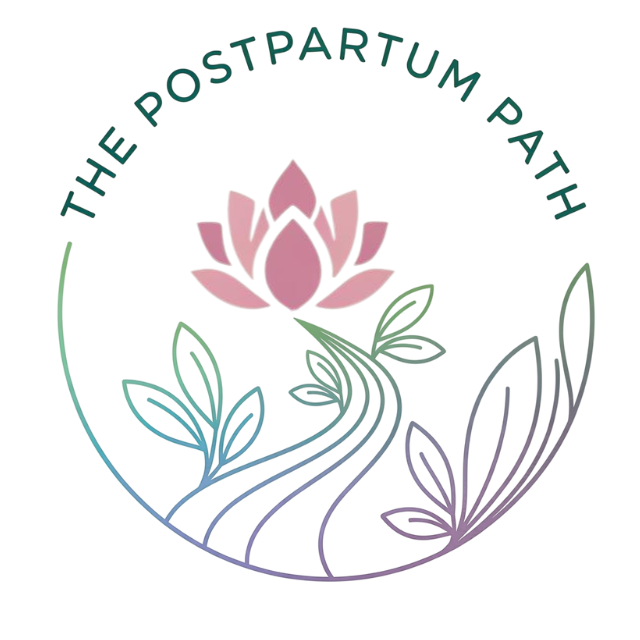The Reformed People-Pleaser’s Guide to Saying No
Sep 21, 2025Ever said yes when every fiber of your body was screaming no?
Like when your aunt insists on visiting the baby again even though you haven’t showered in three days, the baby just spit up in your hair, and your left boob feels like it’s being gnawed on by a tiny shark. But you smile, say, “Sure, come on over!” and then immediately fantasize about hiding in the crawl space.
Yep. Been there.
Postpartum is the perfect storm for people-pleasers. You’re sleep-deprived, raw, flooded with hormones, and suddenly surrounded by people who believe your uterus automatically grants them a say in your life. And if you’ve spent years equating “no” with “I am a terrible, ungrateful monster,” this is where the wheels really come off.
I know, because that was me.
My Rock-Bottom “Yes” Story
I still remember agreeing to host a “quick coffee drop-in” two weeks postpartum. My parents showed up with extended family in tow (unannounced!), and suddenly my living room was a baby parade ground. I sat there, bleeding, wearing the same nursing bra I’d been in for 48 hours, smiling through tears while passing my newborn around like a hot potato. (Ever feel like you pasted a smile on?)
That night, I broke down in the bathroom. Not because my parents were cruel (they were actually trying to help), but because I had completely abandoned myself. I had said yes when I desperately needed to say no.
And that was the turning point.
Because here’s the uncomfortable truth: every “yes” to someone else when you want to say “no” is really a “no” to yourself. And postpartum? You cannot afford to keep saying no to yourself.
Why Saying No Feels So Damn Hard
Saying no feels threatening for a few reasons (and no, it’s not because you’re weak—it’s because you’re human):
-
Survival Instincts: Our brains are wired to keep the tribe happy. If you annoyed your village 2,000 years ago, you might literally be left out for the wolves. Your brain still reacts like saying no is a life-or-death decision.
-
Cultural Conditioning: Especially for women, “yes” is rewarded. Be agreeable, be nice, don’t rock the boat. Meanwhile, saying no often comes with side-eyes, guilt trips, or outright judgment.
-
Postpartum Guilt Olympics: Add in the pressure to be the “perfect mom,” and suddenly you feel like saying no to visitors is basically depriving your baby of future social skills. (Spoiler: it’s not.)
The Three Tools That Helped Me Reclaim “No”
The good news? Saying no is a skill. Like learning how to swaddle a baby burrito—it feels impossible at first, then suddenly you’re a pro.
Here are the three tools that helped me transition from Olympic-level people-pleaser to a reformed “no”-er:
1. The Pause Button
People-pleasers tend to blurt out yes before the brain even checks in. Your new superpower? The pause.
Try saying:
-
“Let me think about it.”
-
“I’ll check and get back to you.”
This creates space for you to ask: Do I actually want to do this, or am I just avoiding conflict?
Fun fact: Mindfulness research shows that even a two-second pause interrupts the automatic people-pleasing reflex. Two seconds. That’s it.
2. The Gentle but Firm No
Cognitive Behavioral Therapy (CBT) taught me that language matters. Saying no isn’t mean—it’s clarity. And clarity is kindness.
Here are some plug-and-play scripts you can use:
-
“I appreciate the offer, but I can’t right now.”
-
“Thanks for thinking of me. I’m focusing on rest and bonding with the baby right now.”
-
“Not this time, but I’ll let you know if that changes.”
Notice: they’re short. No dissertations, no 15 excuses about why you’re declining. Just clear, kind boundaries.
3. The Bathroom Strategy
This one sounds ridiculous, but hear me out. In Dialectical Behavior Therapy (DBT), we use distress tolerance skills to get through overwhelming moments. My postpartum twist? The bathroom break.
When in doubt, excuse yourself. “I’ll be right back, I just need to step away.” Hide in the bathroom, splash cold water on your face, breathe. Decide what your boundary is, then come back with clarity.
I used this move countless times. Honestly, half my early boundaries were born in the bathroom.
The “Wow” Moment: You’re Teaching Your Baby
Here’s what blew my mind: every time you say no, you’re not just protecting your peace—you’re modeling healthy boundaries for your child.
Think about it. They’re watching you. They’ll grow up knowing it’s normal to honor their needs, to say no when something doesn’t feel right, to rest without guilt.
So saying no isn’t selfish. It’s generational healing.
Want the Exact Words? I’ve Got You.
If you’re nodding along but also thinking, “Cool, but my brain goes completely blank under pressure,”—you’re not alone. That’s why I created “Saying No: Boundary Scripts for New Parents.”
It’s a $27 toolkit full of ready-to-use scripts for the exact moments you freeze up:
-
When your mother-in-law shows up uninvited.
-
When your boss pings you at 9 p.m. on maternity leave.
-
When a friend signs you up for something you never agreed to.
Basically, it’s the cheat sheet I wish I had when I was drowning in postpartum people-pleasing.
Because “no” isn’t shutting people out. It’s opening space for healing, rest, and joy. And you deserve every bit of that.
Stay connected with news and updates!
Join our mailing list to receive the latest news and updates from our team.
Don't worry, your information will not be shared.
We hate SPAM. We will never sell your information, for any reason.

